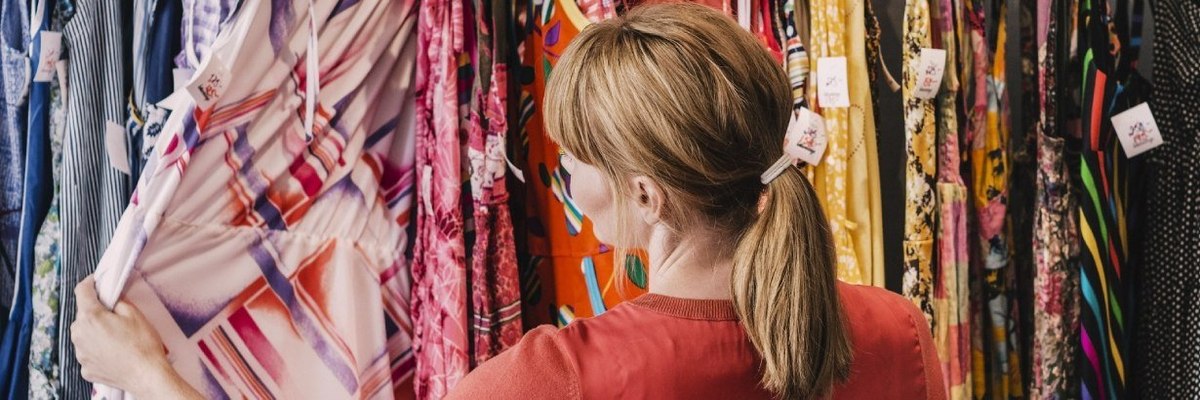Clothing and non-essential food spending top the list
This survey was conducted again more recently in September 2022 - you can find the results here
As the cost-of-living crisis continues to bite, a new YouGov survey reveals how many Britons have been forced to make spending reductions on 24 areas of household spending.
Clothing tops the list, with 44% saying they had been forced to cut back on their clothing purchases since November. This most common form such cuts take is people reducing their spending by buying clothes less frequently (29%), although 10% are switching to cheaper alternatives and 8% say they have been forced to stop spending money on clothes altogether.
(These answers in this question are not mutually exclusive, so do not sum to the overall 44% as some people are making more than one type of cutback.)
How many people have had to cut back on food and drink spending because of the cost of living?
More indulgent forms of food spending also come close to the top of the list, with 39% saying they’ve had to cut back on eating out, the same number saying they have done so for non-essential food items, and 38% no longer able to spend as much on takeaways.
As for alcohol, a quarter of Britons (27%) say they have had to spend less on booze since November, including 7% who have had to cut it out entirely for cost reasons.
When it comes to staple essential food items, 31% say they’ve been forced to cut back their spending. This is primarily people switching to cheaper alternatives (20%), although 11% say they are spending money on food less frequently now.
How many people have had to cut back on household essentials spending because of the cost of living?
The number of Britons have had to cut back on household essentials like cleaning products and toilet roll is virtually the same as the number who have had to cut back on staple foods, both in terms of how many are affected overall (29%) and how that breaks down in terms of the types of cuts being made.
A quarter of Britons (25%) have had to reduce spending on toiletries like toothpaste and shampoo, with cutbacks most likely to take the form of switching to cheaper alternatives (17%).
How many people have had to cut back on beauty spending because of the cost of living?
One in four Britons (25%) have also been forced to make cutbacks on their cosmetics spend, including one in three women (35%) and 15% of men.
A similar number of Britons (29%) have also had to reduce spending on beauty services like hair cuts and manicures, with women again much more likely to have had to do so as men (38% vs 20%).
How many people have had to cut back on leisure spending because of the cost of living?
Aside from the aforementioned 39% of Britons who have had to cut back on eating out, three in ten Britons have also been forced to spend less on day trips (31%) and holidays (30%). This includes 11% who say they’ve had to scrap their holiday plans entirely since November.
A further one in five (22%) have been forced to curtail spending on trips to the cinema, and 24% now have to spend less on pursuing their hobbies.
How many people have had to cut back on subscriptions because of the cost of living?
Many types of subscription spending come low down on the list of cutbacks, even when you account for the smaller numbers of Britons who are spending money on them in the first place.
One in five Britons (19%) say they have been forced to cut back on their digital TV subscription – this represents 28% of everyone who has such a subscription in the first place.
A similar 18% have cut back on their mobile phone contract (representing 20% of those with a mobile phone contract), and 15% have cut back on their home broadband subscription (16% of all those with a subscription).*
When it comes to streaming, 17% have had to cut back on video streaming subscriptions and 13% on music streaming subscriptions (equivalent to 27% and 30% of those with such subscriptions in the first place).
Gym memberships have been hit much harder. While only 11% of Britons overall have said they had to cut back on their gym spending, this represents 42% of those who spent money on gym membership in the first place.
How many people have had to cut back on insurance because of the cost of living?
Fewer Britons have felt they have to leave themselves less well protected as a result of cost of living increase, so far at least. One in eight Britons (12%) say they’ve had to reduced their spending on home or contents insurance, and 15% say the same of their car insurance. These figures represent 16% and 21% respectively of those who were spending on these forms of insurance in the first place.
How many people have had to cut back on petrol and diesel because of the cost of living?
One in five Britons appear to be driving less as a result of the rising cost of living, with 22% saying they have been forced to do so less frequently. They form the bulk of the 27% of Britons who have had to reduce spending on petrol and diesel in some way (which itself is the equivalent to 36% of those who were spending money on fuel in the first place).
*YouGov is an online-only pollster, and as such results for activities that require internet connectivity should be seen as representative of the online population only











